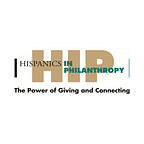The Time to End the Pandemic in the Latinx Community is Now
As California opens access to the COVID-19 vaccine for all adults, we need to prioritize those on the front lines, in need of financial resources, in order to reach populations and neighborhoods hardest hit by the pandemic. The Latinx communities that have been disproportionately impacted are particularly vulnerable because they also face a multitude of economic and social inequities. Despite the fact that Latinxs in the United States are about twice as likely to be at risk for COVID-19 infection, only 24% of Latinxs in California have been vaccinated.
These weeks ahead will prove to be a critical moment for equitable vaccination efforts, particularly for those that are homebound, limited English speaking, or may lack transportation access, in addition to other barriers. To overcome these challenges, government officials, philanthropy, and others in positions of power must prioritize the following.
Focus on Specific Cities/Counties. We know the places that lack resources, down to the zip code. National and California-targeted organizations like the Advancement Project already provide a wealth of reports and data.
Language Access. We need to extend language access beyond just Spanish. Mixteco Inigena Community Organizing Project (MICOP) tackled this particular issue by launching an Indigenous Language Services program to collaborate with schools, healthcare providers, law enforcement, and social service agencies.
Focus on Frontline Workers. While the vaccine itself is free, there are barriers for frontline workers such as transportation to and from the vaccination site, translation, time off from work, and follow-up care that still need to be accounted for. Lideres Campesinas and Vision y Compromiso have addressed this by creating coalitions with growers, farmworkers, and healthcare professionals to educate and mobilize community residents across the state.
Community Clinics. Working with local community clinics is a promising practice. As noted by a survey conducted by the Kaiser Family Foundation, the majority of people who received vaccines at community health centers were people of color. Our state can partner with the California Primary Care Association that represents more than 1,380 not-for-profit community centers across the state already located in majority-Latinx communities.
Fund Community-Based Organizations. Latino Community Foundation launched a statewide $2 million initiative to support local nonprofits responding to the emergency needs of the pandemic. Similarly, Grantmakers Concerned with Immigrants and Refugees launched California Disaster Relief Assistance for Immigrants to help individuals apply for and receive disaster relief assistance. In Los Angeles, Comunidades Indigenas en Liderazgo raised about $1.5 million for direct cash assistance for their indigenous communities. Nationally, Hispanics in Philanthropy’s Essential Fund granted $2.5 million to organizations that could provide direct support in the form of cash, food, and rental assistance, child care, and more.
Trusted Messengers. There are many models of community health workers, and local leaders also known as promotores that are able to connect and influence our familia. Supporting trusted voices that reach people where they are, such as Radio Bilingüe to counter misinformation, are of the essence.
Accessibility and Addressing the Digital Divide. Not everyone has access to the internet or a cell phone with internet access, especially in the Central Valley and rural communities. We need to fund libraries and community centers that can provide an alternative, safe, and streamlined access to internet service.
Legal Access and Sick Leave. Across the state, Legal Aid at Work offers multilingual services to support low-income and unemployed people with information about their legal rights to work. Our network also believes that emergency sick leave, enacted through the various stimulus bills in Congress, needs to be permanent and expanded to workers nationwide.
One of the many lessons that this pandemic has taught us, is that we must support the most vulnerable for all of us to thrive. The pandemic will soon become endemic, but we will continue to need a robust and equitable vaccination system for booster shots and to vaccinate our children. A system that reaches everyone. Let’s support all community residents to stay healthy, safe, and protected. Let’s Act Now!
—
Glenda Monterroza, Program Manager, Blue Shield of California Foundation
Luis Arteaga, Chief Executive Officer, Y&H Soda Foundation
Carmela Castellano-Garcia, President, Castellano Family Foundation
This op-ed was written by members of the Bay Engaged network, a network of Latinx Funders in the California Bay Area. To learn more about the Bay Engaged network, please contact Amalia Brindis Delgado, Associate VP of Hispanics in Philanthropy at amalia@hiponline.org.
